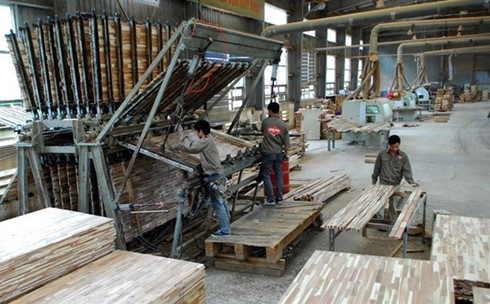Wood enterprises helped to meet EU requirements
Sponsored by the EU, the project has been implemented by the Vietnamese Sustainable Forest Management Institute (SFMI) in collaboration with the NEPCon, an international non-profit organisation.
According to Ann Weddle, director of the project, after three years of implementation, the project has built a set of tools to support Vietnamese enterprises in meeting requirements on legal wood, enable them to work with the European Union businesses.
 |
| Workers process wood products at SAHABAK Joint Stock Company in Bac Kan Province’s Thanh Binh Industrial Zone |
It has compiled forestry legal risk profiles for Vietnam and five other countries that Vietnam imports wood from, she said, adding that the profiles helped Vietnamese companies access legal risks when importing wood from those countries, thus helping them export their products to the EU market easily.
Representatives of participating enterprises said via the project, businesses were equipped with knowledge on legal wood and regulations of the EU and requirements of the FLEGT action plan.
The set of tools is very useful as it assists enterprises in assessing and managing wood supplies, thus making them ready to meet the FLEGT requirements.
Earlier, on November 18, 2016, after years of negotiation, Vietnam and the EU reached an agreement in principle to work together towards reducing illegal wood exploitation, improving forest administration and promote legally-produced wood trade promotion via the Voluntary Partnership Agreement (VPA) on FLEGT.
Nguyen To Uyen from the Cooperation Committee of the EU Delegation in Vietnam said though the VPA is just a bilateral agreement, its impacts will be beyond Vietnam’s border given the country’s centre role in the global trade of wood products.
The signing of the VPA will help improve domestic standards and help enterprises access EU markets easier, she noted.

